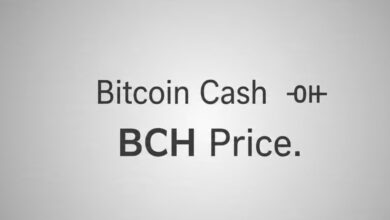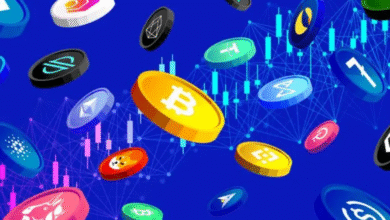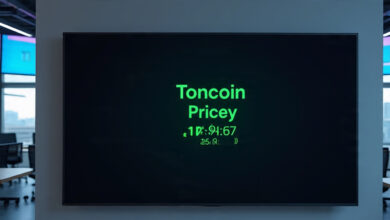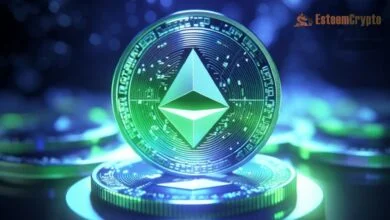Ultimate Guide How to Buy Altcoins Safely in 2025
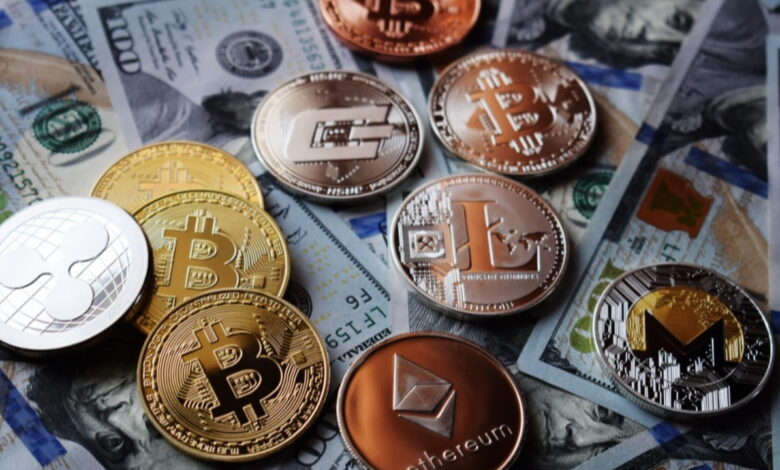
The altcoin market in 2025 presents unprecedented opportunities for investors seeking to diversify beyond Bitcoin. With thousands of alternative cryptocurrencies available, learning how to buy altcoins safely has become crucial for both novice and experienced investors. The cryptocurrency landscape has evolved significantly, offering more sophisticated trading platforms, enhanced security measures, and regulatory clarity that make altcoin investing more accessible than ever before.
Buying altcoins requires careful consideration of multiple factors, including exchange selection, wallet security, market analysis, and risk management. The crypto market continues to mature, bringing institutional adoption and regulatory frameworks that provide better investor protection. However, this growth also means navigating an increasingly complex ecosystem where cryptocurrency security remains paramount.
Modern altcoin exchanges offer advanced features like cold storage, multi-factor authentication, and insurance coverage, yet investors must still understand the fundamental principles of safe crypto trading. From established altcoins like Ethereum, Cardano, and Solana to emerging projects, each investment requires thorough research and strategic planning.
This comprehensive guide will walk you through every aspect of purchasing altcoins securely, from selecting reputable cryptocurrency exchanges to implementing robust crypto wallet security measures. You’ll learn about decentralized exchanges (DEXs), centralized exchanges (CEXs), portfolio diversification strategies, and common pitfalls to avoid. Whether you’re interested in DeFi tokens, layer-1 blockchains, or emerging digital assets, this guide provides the knowledge needed to navigate the altcoin market confidently and safely in 2025.
Understanding Altcoins and Market Dynamics
What Are Altcoins
Altcoins, short for “alternative coins,” represent any cryptocurrency other than Bitcoin. These digital assets serve various purposes within the blockchain ecosystem, from facilitating smart contracts to powering decentralized finance (DeFi) applications. Understanding altcoin types is essential before making any investment decisions.
The altcoin market encompasses several categories:
Smart contract platforms like Ethereum (ETH), Cardano (ADA), and Solana (SOL) provide infrastructure for decentralized applications. DeFi tokens power lending, borrowing, and yield farming protocols. Utility tokens grant access to specific blockchain services, while governance tokens allow holders to participate in protocol decision-making.
Meme coins and speculative altcoins often attract retail investors due to their viral nature, but they carry significantly higher risks. Privacy coins like Monero focus on transaction anonymity, while stablecoins maintain price stability by pegging to fiat currencies.
Market Analysis and Trends in 2025
The cryptocurrency market in 2025 shows increased institutional adoption and regulatory clarity across major jurisdictions. Established altcoins like SOL, ADA, and ETH have proven resilient over multiple market cycles, making them attractive for risk-conscious investors.
Crypto market trends indicate growing interest in layer-2 solutions, cross-chain interoperability, and real-world asset tokenization. Understanding these trends helps identify promising. Altcoin investments with long-term potential rather than chasing short-term speculation.
Market volatility remains a defining characteristic of altcoins, with prices subject to significant fluctuations based on technological developments, regulatory news, and market sentiment. Professional investors recommend allocating only a small percentage of total portfolio value to cryptocurrency investments.
Choosing the Right Exchange Platform
Centralized Exchanges (CEXs) vs Decentralized Exchanges (DEXs)
Selecting the appropriate cryptocurrency exchange is fundamental to safe altcoin trading. Two primary options exist for buying altcoins safely: centralized exchanges (CEXs) and decentralized exchanges (DEXs).
Centralized exchanges offer user-friendly interfaces, high liquidity, and customer support services. Popular CEXs include Binance, Coinbase, Kraken, Crypto.com, Gemini, Bybit, KuCoin, Bitstamp, OKX, and Huobi. These platforms provide fiat-to-crypto onramps, making them ideal for beginners entering the altcoin market.
Decentralized exchanges operate without a central authority, allowing peer-to-peer trading directly from personal wallets. Popular DEXs include Uniswap, PancakeSwap, Curve, SushiSwap, and other automated market makers (AMMs). DEXs offer greater privacy and control but require more technical knowledge.
Top Exchanges for Altcoin Trading
Binance remains the world’s largest cryptocurrency exchange by trading volume, offering an extensive altcoin selection and advanced trading features. The platform provides spot trading, futures contracts, and staking services for numerous digital assets.
Coinbase appeals to beginners with its intuitive interface and regulatory compliance in major markets. The exchange offers a curated selection of altcoins with strong security measures and insurance coverage for custodial funds.
Kraken provides professional-grade trading tools with an excellent security reputation and regulatory compliance. The platform supports numerous altcoin trading pairs and offers margin trading capabilities for experienced traders.
Security Features to Look For
When evaluating altcoin exchanges, prioritize platforms with robust security measures. Essential features include two-factor authentication (2FA), cold storage for customer funds, regular security audits, and insurance coverage for digital assets. Most exchanges use features like cold wallets, 2FA, and encryption to protect assets, but they remain vulnerable to hacking.
Reputable exchanges maintain the majority of customer funds in offline cold storage, reducing exposure to online threats. Regulatory compliance indicates an exchange commitment to security and legal operations. Licensed exchanges must adhere to strict security standards and maintain adequate capital reserves to protect customer funds.
Wallet Security and Storage Solutions
Types of Cryptocurrency Wallets
Crypto wallet security forms the foundation of safe altcoin storage. Understanding different wallet types helps investors choose appropriate solutions for their security needs and usage patterns. Hot wallets maintain internet connectivity, enabling convenient access for frequent trading.
These include mobile apps, desktop software, and web-based wallets. While user-friendly, hot wallets face higher security risks due to online exposure. Cold wallets store private keys offline, providing maximum security for long-term altcoin storage. Hardware wallets are among the safest places to store altcoins in 2025 because they’re not vulnerable to online attacks.
Software and Mobile Wallets
Software wallets provide convenient access to altcoins for daily transactions and DeFi interactions. Popular options include MetaMask for Ethereum-based tokens, Phantom for Solana, and Trust Wallet for multi-chain support.
Mobile crypto wallets enable altcoin trading and portfolio management on smartphones. These wallets often integrate with decentralized exchanges and DeFi protocols, allowing users to participate in yield farming and liquidity provision. When using software wallets, implement strong passwords, enable biometric authentication where available, and regularly back up seed phrases in secure locations.
Step-by-Step Altcoin Purchasing Process
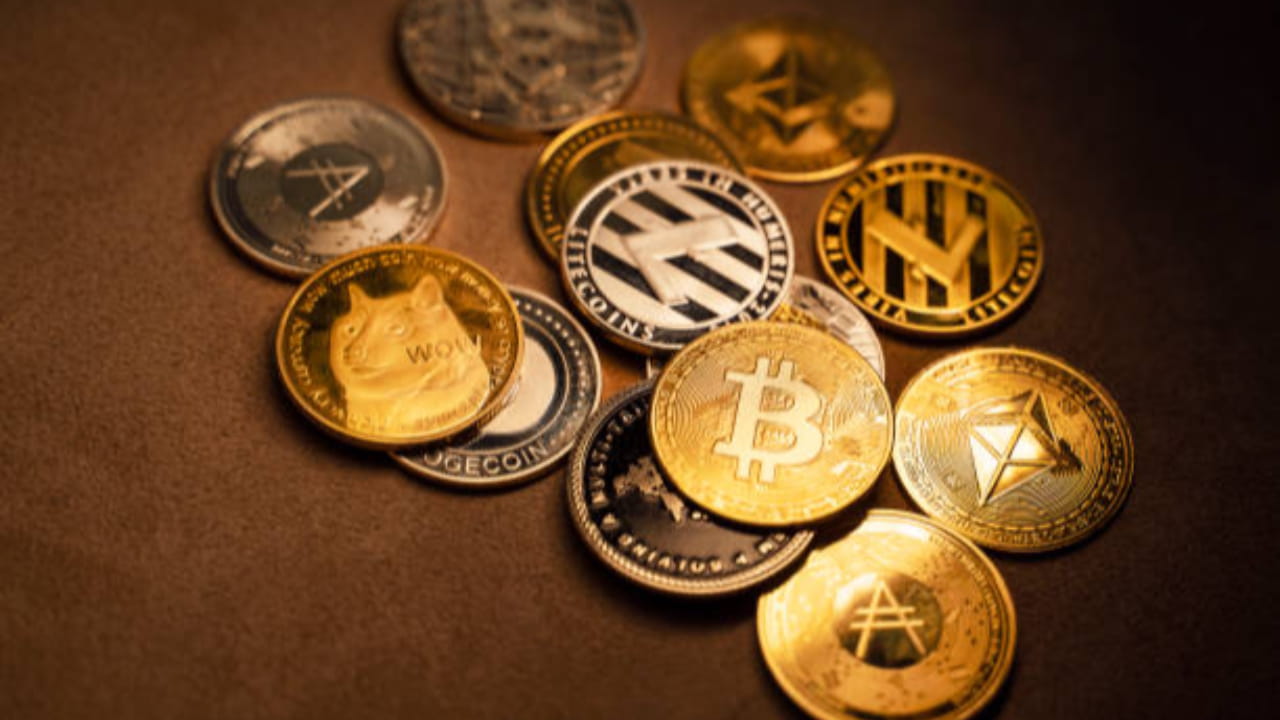
Account Setup and Verification
Beginning your altcoin investment journey requires proper account setup on the chosen exchanges. KYC verification (Know Your Customer) has become standard practice for reputable cryptocurrency exchanges, requiring identity documents and proof of address.
Complete verification processes promptly to avoid delays when purchasing altcoins. Most exchanges implement tiered verification levels, with higher tiers allowing larger transaction limits and access to advanced features. Secure your exchange account with strong, unique passwords and enable two-factor authentication immediately after registration. Use authenticator apps rather than SMS for enhanced security.
Funding Your Account
Cryptocurrency exchanges offer multiple funding methods, including bank transfers, credit cards, debit cards, and cryptocurrency deposits. Bank transfers typically offer the lowest fees but require longer processing times. Credit card purchases provide instant access to altcoin markets but carry higher fees.
Consider these costs when planning your investment strategy, as frequent small purchases can accumulate significant fees. Some exchanges offer promotional rates or fee discounts for new users. Research available promotions while prioritizing platform security and reputation over cost savings alone.
Placing Your First Altcoin Order
Altcoin trading involves several order types designed for different investment strategies. Market orders execute immediately at current prices, while limit orders allow specifying exact purchase prices. Dollar-cost averaging helps reduce volatility impact by spreading purchases across multiple time periods. This strategy works particularly well for long-term altcoin investments in established projects.
Research altcoin projects thoroughly before investing. Evaluate technology, team credentials, use cases, tokenomics, and community support. Avoid investing in projects based solely on hype or social media recommendations.
Risk Management and Security Best Practices
Portfolio Diversification Strategies
Cryptocurrency portfolio diversification reduces risk by spreading investments across multiple altcoins and sectors. Avoid concentrating funds in a single project or closely related projects that might face similar risks. Consider allocating investments across different altcoin categories: established layer-1 blockchains, DeFi protocols, Web3 infrastructure, gaming tokens, and emerging technologies.
This approach helps balance potential returns with risk exposure. Maintain appropriate allocation percentages relative to your overall investment portfolio. Most financial advisors recommend limiting cryptocurrency investments to 5-10% of total assets due to high volatility.
Common Scams and How to Avoid Them
The altcoin market attracts numerous scams targeting inexperienced investors. Pump and dump schemes artificially inflate token prices before orchestrated sell-offs. Research projects independently rather than following social media hype. Fake exchanges and phishing websites attempt to steal login credentials and funds. Always verify exchange URLs and use official mobile applications.
Bookmark legitimate exchange websites to avoid typosquatting domains. Rug pulls occur when project developers abandon projects after raising investor funds. Evaluate team transparency, code audits, and tokenomics carefully. Avoid projects with anonymous teams or unrealistic promises.
Insurance and Recovery Options
Leading cryptocurrency exchanges provide insurance coverage for custodial funds, protecting against platform-specific risks. However, this insurance typically doesn’t cover individual account compromises due to poor security practices.
Seed phrase recovery enables wallet restoration if devices are lost or damaged. Store seed phrases securely offline, preferably in multiple secure locations. Never share seed phrases or store them digitally. Consider crypto insurance services for significant holdings. Several companies now offer coverage for various cryptocurrency risks, though policies remain expensive and limited in scope.
Advanced Trading Strategies
Technical Analysis for Altcoins
Altcoin trading benefits from technical analysis techniques adapted to cryptocurrency market characteristics. Traditional indicators like moving averages, RSI, and MACD provide insights into price trends and momentum. Crypto market volatility requires adjusted risk management parameters compared to traditional assets.
Set appropriate stop-loss levels and position sizes based on individual altcoin volatility patterns. On-chain analysis provides unique insights unavailable in traditional markets. Monitor metrics like active addresses, transaction volumes, and developer activity to gauge project health and adoption trends.
DeFi and Yield Farming Opportunities
Decentralized finance protocols offer various ways to generate returns from altcoin holdings. Yield farming involves providing liquidity to automated market makers in exchange for rewards. Staking allows earning rewards by participating in network consensus mechanisms.
Many proof-of-stake altcoins offer staking rewards ranging from 3-15% annually, though rates vary based on network parameters. Understand smart contract risks before participating in DeFi protocols. Code bugs, governance attacks, and economic exploits can result in total loss of deposited funds. Only use audited protocols with proven track records.
Long-term vs Short-term Strategies
Long-term altcoin investing focuses on fundamental analysis and holding quality projects through market cycles. This approach requires patience but potentially offers higher returns with lower stress and tax efficiency. Short-term altcoin trading attempts to profit from price volatility through technical analysis and market timing.
This strategy demands significant time commitment, trading knowledge, and emotional discipline. Hybrid approaches combine long-term core holdings with smaller trading positions. Maintain primary positions in established altcoins while allocating smaller amounts to speculative trades and new project opportunities.
Regulatory Landscape and Compliance
Global Regulatory Updates
Cryptocurrency regulation continues evolving across major jurisdictions, impacting altcoin trading accessibility and requirements. The European Union’s MiCA regulation provides a comprehensive framework for crypto asset operations.
United States agencies, including the SEC, CFTC, and Treasury, continue developing cryptocurrency oversight mechanisms. Regulatory clarity generally benefits established altcoin projects while potentially limiting speculative tokens. Stay informed about regulatory developments affecting your jurisdiction. Regulatory changes can impact altcoin availability on exchanges and tax reporting requirements for investors.
Tax Implications
Cryptocurrency tax obligations vary significantly by jurisdiction, but generally treat altcoin transactions as taxable events. Trading one cryptocurrency for another typically triggers capital gains calculations. Crypto tax software helps track transactions and calculate obligations across multiple exchanges and wallets.
Popular options include CoinTracker, Koinly, and TaxBit for automated reporting. Consult qualified tax professionals familiar with cryptocurrency regulations in your jurisdiction. Proper tax planning and record-keeping prevent costly mistakes and ensure compliance with reporting requirements.
Future Trends and Market Outlook

Emerging Technologies and Altcoins
Blockchain technology continues evolving with innovations in scalability, interoperability, and functionality. Layer-2 solutions address Ethereum’s scaling limitations while maintaining security and decentralization. Cross-chain protocols enable asset transfers between different blockchains, potentially reducing the significance of blockchain tribalism.
Projects focusing on interoperability may benefit from this trend. Real-world asset tokenization represents a growing sector where traditional assets like real estate, commodities, and securities are represented as blockchain tokens. This trend could significantly expand the altcoin market.
Market Predictions for 2025
Institutional adoption continues growing as traditional financial institutions integrate cryptocurrency services. This trend typically benefits established altcoins with strong regulatory compliance and institutional-grade security. Central bank digital currencies (CBDCs) may impact the cryptocurrency landscape by providing government-backed digital payment options.
However, CBDCs differ significantly from decentralized altcoins in philosophy and implementation. Artificial intelligence integration with blockchain technology creates new altcoin opportunities in areas like decentralized computing, data markets, and autonomous systems.
Troubleshooting Common Issues
Transaction Problems and Solutions
Altcoin transactions occasionally face delays or failures due to network congestion. Insufficient fees or technical issues. Monitor network status and adjust gas fees appropriately during peak usage periods. Stuck transactions can often be resolved by increasing gas fees or using transaction replacement features available in many wallets.
Understanding blockchain confirmation requirements helps set realistic expectations for transaction timing. Wrong network transfers represent. A common mistake when dealing with multi-chain altcoins. Always verify the correct network (Ethereum/ Binance Smart Chain, Polygon, etc.) before sending transactions.
Account Recovery and Support
Exchange account recovery typically requires identity verification and may take several days to complete. Maintain updated contact information and backup authentication methods to expedite recovery processes. Wallet recovery depends on proper seed phrase storage and backup.
Hardware wallet recovery requires the physical device and the correct PIN, emphasizing the importance of secure storage for both components. Document all altcoin purchases, trades, and storage locations for easier recovery and tax reporting. Maintain this information securely. But separately from actual funds and access credentials.
Also Read: New Altcoin Buying Guide Avoid 8 Deadly Mistakes
Conclusion
Successfully buying altcoins safely in 2025 requires a comprehensive understanding of exchanges, wallets, security practices, and market dynamics. The cryptocurrency market offers unprecedented opportunities for investors willing to learn proper procedures and implement robust security measures.
By choosing reputable cryptocurrency exchanges, utilizing appropriate crypto wallets. By diversifying portfolios wisely and staying informed about regulatory developments, investors can navigate the altcoin market with confidence. Remember that cryptocurrency investing involves significant risks, and never invest. More than you can afford to lose.
The key to successful altcoin trading lies in continuous education. Careful research and disciplined risk management practices that protect your investments. While capitalizing on the tremendous growth potential of digital assets.

